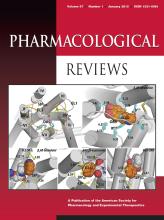Abstract
Idiopathic pulmonary fibrosis (IPF) is characterized by progressive lung scarring, short median survival, and limited therapeutic options, creating great need for new pharmacologic therapies. IPF is thought to result from repetitive environmental injury to the lung epithelium, in the context of aberrant host wound healing responses. Tissue responses to injury fundamentally involve reorganization of the actin cytoskeleton of participating cells, including epithelial cells, fibroblasts, endothelial cells, and macrophages. Actin filament assembly and actomyosin contraction are directed by the Rho-associated coiled-coil forming protein kinase (ROCK) family of serine/threonine kinases (ROCK1 and ROCK2). As would therefore be expected, lung ROCK activation has been demonstrated in humans with IPF and in animal models of this disease. ROCK inhibitors can prevent fibrosis in these models, and more importantly, induce the regression of already established fibrosis. Here we review ROCK structure and function, upstream activators and downstream targets of ROCKs in pulmonary fibrosis, contributions of ROCKs to profibrotic cellular responses to lung injury, ROCK inhibitors and their efficacy in animal models of pulmonary fibrosis, and potential toxicities of ROCK inhibitors in humans, as well as involvement of ROCKs in fibrosis in other organs. As we discuss, ROCK activation is required for multiple profibrotic responses, in the lung and multiple other organs, suggesting ROCK participation in fundamental pathways that contribute to the pathogenesis of a broad array of fibrotic diseases. Multiple lines of evidence therefore indicate that ROCK inhibition has great potential to be a powerful therapeutic tool in the treatment of fibrosis, both in the lung and beyond.
Footnotes
This research was supported by the National Institutes of Health National Heart, Lung, and Blood Institute [Grants T32-HL116275 (to R.S.K.), R01-HL095732 and R01-HL108975 (to A.M.T.), and R01-HL052233 and R01-HL091933 (to J.K.L.)]; the National Institutes of Health National Institute of Diabetes and Digestive and Kidney Diseases [Grant R01-DK085006 (to J.K.L.)]; the National Institutes of Health National Institute of Neurological Disorders and Stroke [Grant R01-NS070001 (to J.K.L.)]; and the Nirenberg Center for Advanced Lung Disease and the Scleroderma Research Foundation [(to A.M.T.)].
- Copyright © 2014 by The American Society for Pharmacology and Experimental Therapeutics
PharmRev articles become freely available 12 months after publication, and remain freely available for 5 years.Non-open access articles that fall outside this five year window are available only to institutional subscribers and current ASPET members, or through the article purchase feature at the bottom of the page.
|






